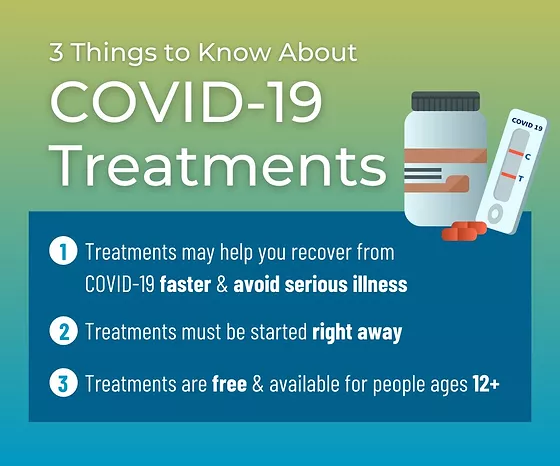A Community Health Worker's guide to the Public Health Emergency (PHE) ending
Is the Pandemic over?
The ending of the PHE will affect certain pandemic-related policies and resources- most will be terminated, while others may remain in effect for a little bit longer. However, COVID-19 still exists and remains a virus of concern for the United States and countries around the world.
According to the U.S. Department of Health & Human Services, the Biden Administration has effectively implemented the largest adult vaccination program in U.S. history, with nearly 270 million Americans receiving at least one shot of a COVID-19 vaccine over the last two years.
As a result of this and other efforts, since the peak of the Omicron surge at the end of January 2022:
Daily COVID-19 reported cases are down 92%,
COVID-19 deaths have declined by over 80%, and
New COVID-19 hospitalizations are down nearly 80%.
Read on to see what the PHE ending will mean for benefits that have been either free, extended or boosted over the last few years while the PHE has been in effect These include Medicaid, SNAP, COVID-19 vaccines, testing & treatment.
Community Health Workers can support families through the transition.
The end of the PHE might be confusing and unexpected to many. Community Health Workers (CHWs) can make this transition smoother for families by having conversations now about changes to benefits or resources they can anticipate. Provide steps they can take to protect and sustain their families as we move out of the emergency phase of the pandemic response.

Medicaid Unwinding
For the last three years, states have suspended rules requiring that people on Medicaid reapply yearly for Medicaid.
Beginning in April, Medicaid will again require individuals to renew yearly. People who signed up for Medicaid more than a year ago will need to renew coverage by proving that they still meet income requirements.
CHW Action Item: Talk to your Medicaid clients to ensure they know how and when to renew their Medicaid. Refer clients to https://www.pathwaystocoverage.net/ for one on one enrollment support.
SNAP Benefits
The last extra payment for SNAP households will be sent in February. Starting in March 2023, SNAP households will only receive one SNAP payment.
CHW Action Item: Identify additional sources of food support for clients, assist clients with budgeting, grocery & nutrition education to help stretch their adjusted food budget.
COVID-19 Vaccines
Supply of the federally purchased vaccines is expected to last through the summer of 2023.
Once the federal supply runs out, private insurance companies as well as Medicaid/Medicare Part B and the Children’s Health Insurance Plan (CHIP) are required to cover vaccines for those they insure.
Those who are uninsured will still be able to find free vaccines through San Antonio Metro Health & other charitable organizations and clinics.
CHW Action Item: Check in with clients to see if they have completed their COVID-19 vaccine series, including the most recent booster. Provide education about vaccines & refer to clinic, if needed. Connect client with The Health Collaborative's COVID-19 Response team for additional questions: 210-481-2573 x 116.
COVID-19 Testing
Four free tests are still available through the federal government through March 31 by visiting CovidTests.gov or calling 1-800-232-0233. You may want to order tests toward the end of March if your household supply is low.
If you are sick and have private insurance or Medicare/Medicaid, your insurance should cover the test with a doctor’s referral.
Free at-home tests may no longer be available through insurance plans when the PHE ends.
CHW Action Item: Help clients sign up to receive COVID-19 tests online & through their pharmacy. If clients have unused tests at home, verify expiration date on the FDA website. Share these websites to locate San Antonio-based no-cost test sites and the CDC tool to find free COVID-19 testing sites.
COVID-19 Treatment
After May 11, people who are enrolled in Medicare or Medicare Part D may start to see new cost-sharing (co-pays) for treatment.
If you have Medicaid or CHIP, medications will continue to be available free of cost for the rest of 2023. That will likely change in 2024.

CHW Action Item: Provide education to clients about available treatments in advance of them contracting COVID-19. Locate Test to Treat Centers: https://covid-19-test-to-treat-locator-dhhs.hub.arcgis.com/ Local low-cost clinics include CentroMed, Communicare and University Health.
Sources:

